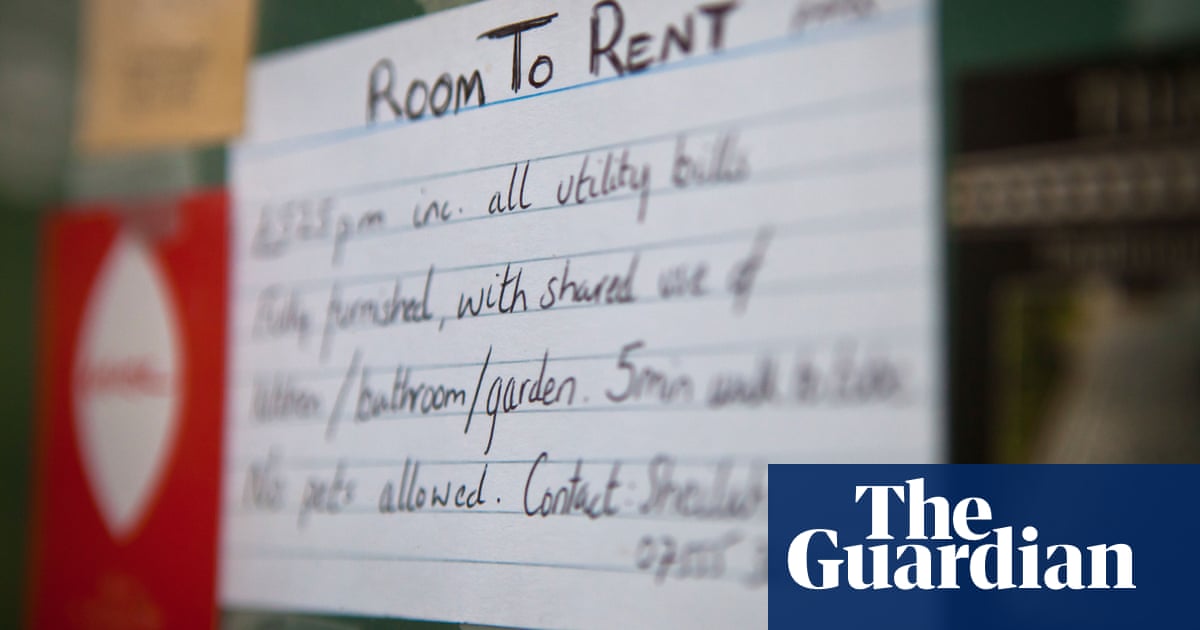
Council leaders have urged Jeremy Hunt to intervene to prevent the collapse of local homelessness services because of the soaring costs of providing emergency housing for evicted families.
A letter signed by a cross-party group of local authority leaders in England indicates that some town halls in effect face bankruptcy and describes mounting temporary housing bills for homeless households as a “critical risk to the financial sustainability of many local authorities”.
It calls for an immediate cash injection of £100m for councils to provide emergency rent support for families at risk of homelessness, together with an end to the four-year freeze on housing allowance rates and long-term investment in social housing.
“Without urgent intervention, the existence of our safety net is under threat,” says the letter to Hunt, the chancellor. “The danger is that we have no option but to start withdrawing services which currently help so many families to avoid hitting crisis point.”
It says that as well as forcing councils to reduce local homelessness prevention services, the crisis could hit the viability of other council services, which would face cuts or closure to enable councils to meet their statutory homelessness duties.
The letter, drawn up by the Conservative leader of Breckland district council in Norfolk, Sam Chapman-Allen, and Stephen Holt, the Liberal Democrat leader of Eastbourne borough council, follows an online summit on Tuesday to discuss the crisis attended by 158 local authorities.
A Guardian investigation published on Monday revealed that some councils were in effect at risk of bankruptcy after spending between a fifth and half of their total available annual financial resources to cope with a rapid explosion in homelessness and the cost of temporary accommodation.
Evictions in some council areas have doubled over the past year as private landlords hit by climbing interest rates dump tenants to sell up or raise rents. Sky-high rents, scarcity of social housing and housing benefit cuts have drastically shrunk the supply of affordable properties in many districts.
Over the past two years many smaller, lower-tier authorities – often in affluent home counties areas around London such as Essex and Sussex – have become increasingly vulnerable financially as a housing and homelessness crisis once focused on London and other major cities has spread rapidly.
Crawley borough council in West Sussex told the Guardian that the number of homeless households it supported in temporary accommodation had risen from 169 in 2020 to 474 currently, pushing annual net spending from £194,000 to a projected £4.8m this year. Anticipated demand from Afghan refugees will push demand even higher.
The leader of Labour-run Crawley council, Michael Jones, said the crisis was caused by “system failure” in housing policy over many years. “The government should be taking action,” he said. “Their response has so far been so inadequate as to be asleep on the job.”
A record 104,000 households are in temporary accommodation in England, according to the latest official figures, at an annual cost to the taxpayer of £1.7bn.
Hannah Dalton, the District Councils’ Network’s housing spokesperson, said: “Unless money is found our services will be decimated, suffering will increase as more people fall into homelessness and other parts of the public sector will be left to pick up the pieces at huge cost.”
Holt said: “The collapse of support for society’s most vulnerable people is now a reality for many, unless the government urgently intervenes.”
A government spokesperson said: “We are committed to reducing the need for temporary accommodation by preventing homelessness before it occurs in the first place, which is why we are providing councils with £1bn through the homelessness prevention grant over three years.”












